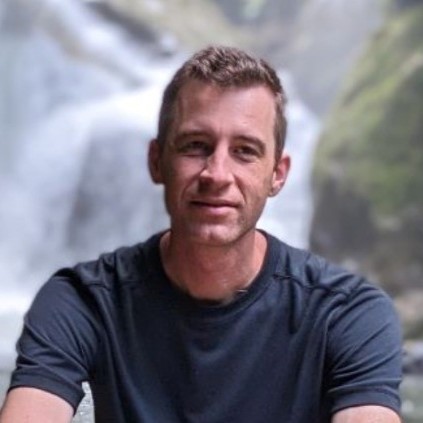What It Was Really Like Taking a Year-Long Vacation
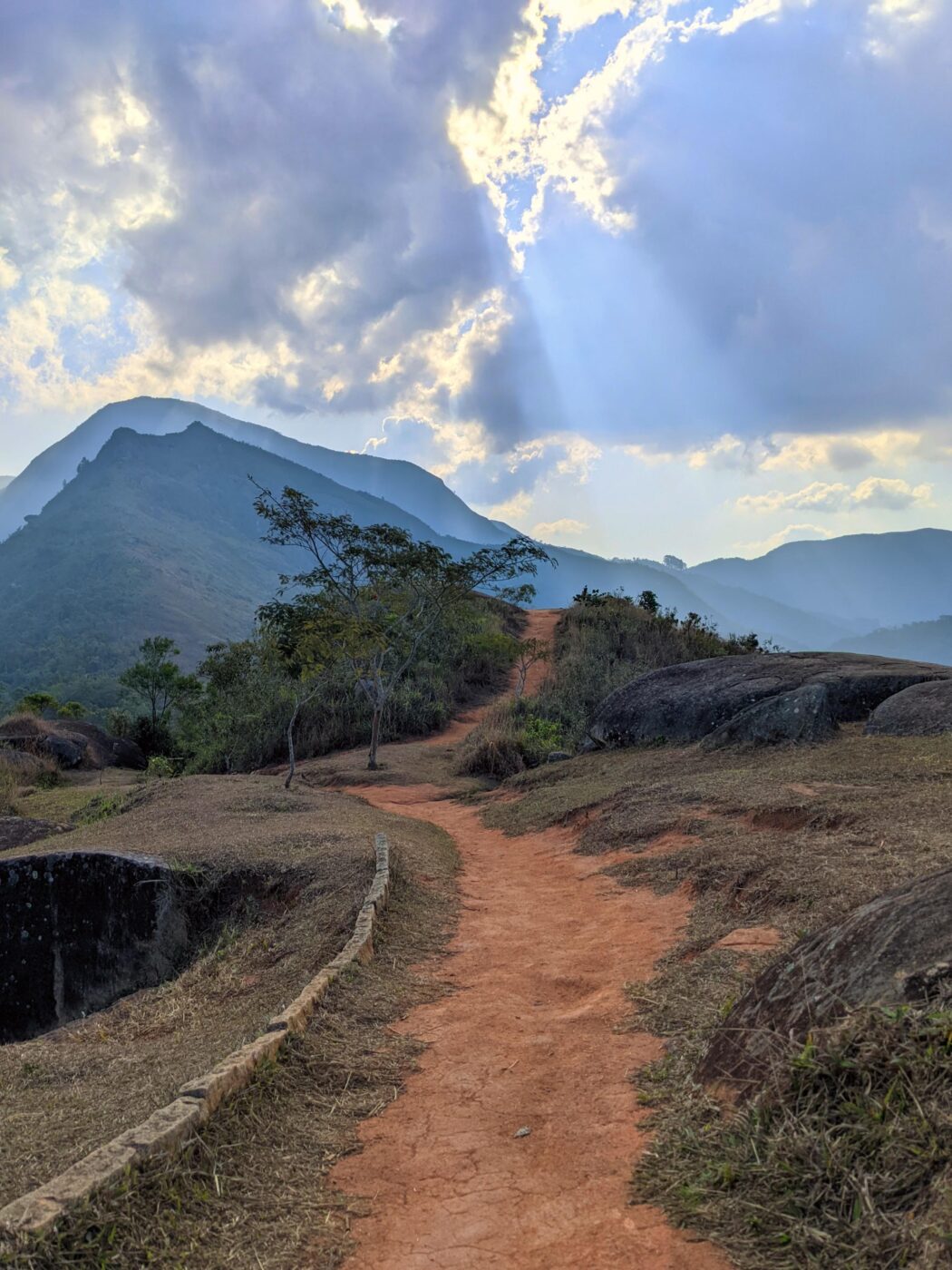
I originally published this reflection on our Substack newsletter. In this edition I expand upon the original with some more insights on the realities of traveling for a year with our family of five.
There are two kinds of people in this world: those who relax and become a better person on vacation, and those for whom time away is pure angst. For the first type, the mere thought of escaping the daily grind is enough to brighten their mood. For others getting away is a source of anxiety: they long to check their work email, weed their garden and wake up in their own bed.
I am of the first sort. I love getting away.
What Would It Be Like?
My first real taste of long-term travel was a semester in Mexico while I was a college student. I reveled in the novelty and beauty of rural Latin America. My mind was stimulated as I tried to decipher rapid-fire Spanish and piece together sentences with my small vocabulary and pocket-sized dictionary (this being before smart phones and translation apps). I came home a different person. I also came home with a severe case of reverse culture shock, but that’s for another post.
That said, the trip that really clinched my love of long-term travel was a month in China with my wife early in our marriage. It was July, 2011, four years post-college. The company I worked for was revving back up after the recession ravaged our talent pool. I was working at a feverish pace late into the evenings, Monday through Saturday.
My company was not into remote work or granting long leaves of absence in those days. But they made an exception for my case, partly because I was on the cusp of quitting anyway.
A memory from that time kept replaying in my head long after we returned. Liuan and I were walking the streets of a pedestrian-only island called Gulangyu, off the coast of Xiamen (where my wife spent a semester abroad in college), and famous for pianos (I forget why). Instead of walking at my normal clip — most adults have to jog to keep up, children have to sprint — I ambled as if my leg muscles were mashed potatoes.
The relief was physical. I noticed it in my neck and shoulders, and the warm feeling in my belly that had replaced the usual butterflies. The time away was long enough that I could pretend that I no longer had a care in the world. I really like this, I remember thinking.
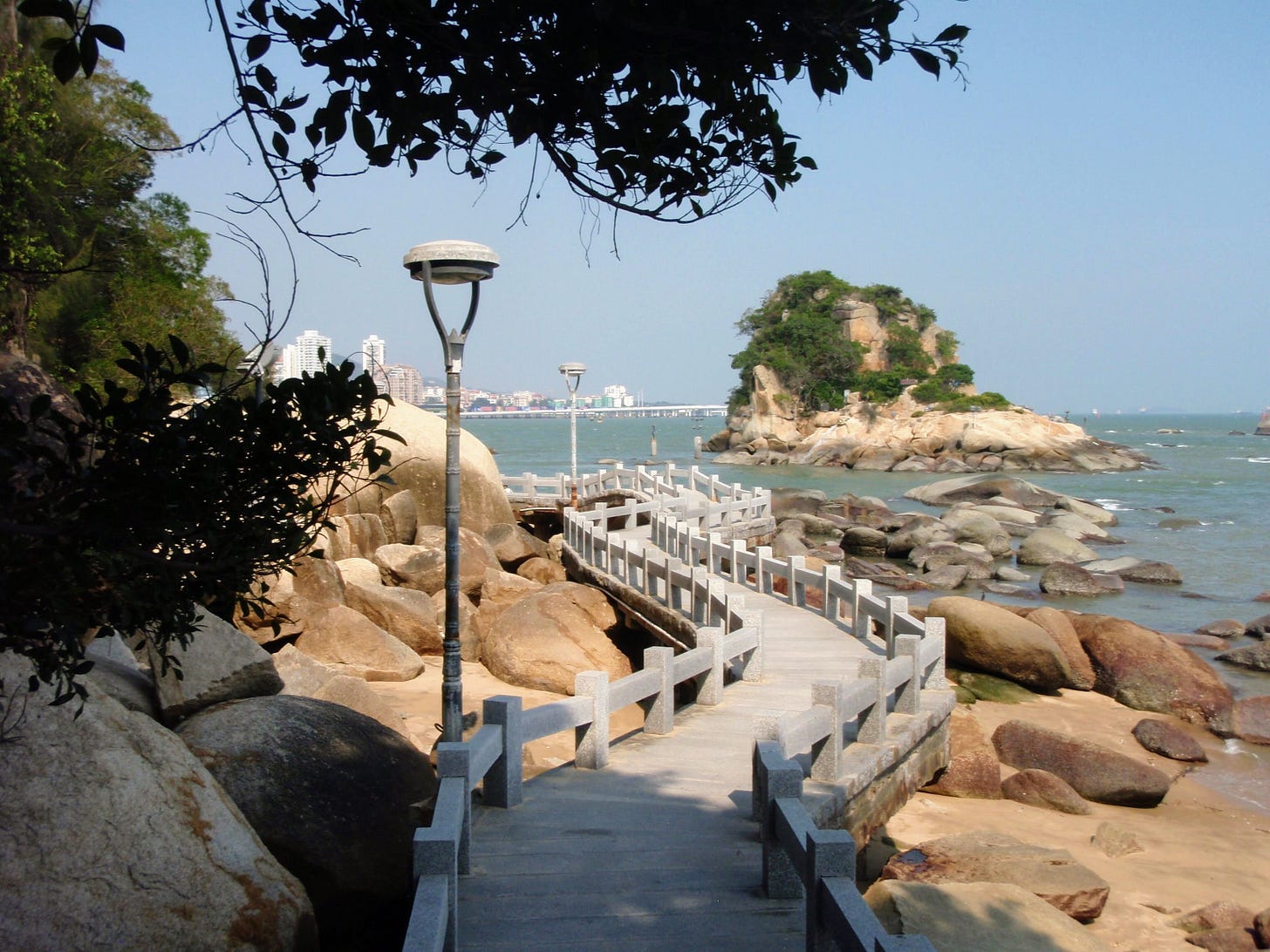
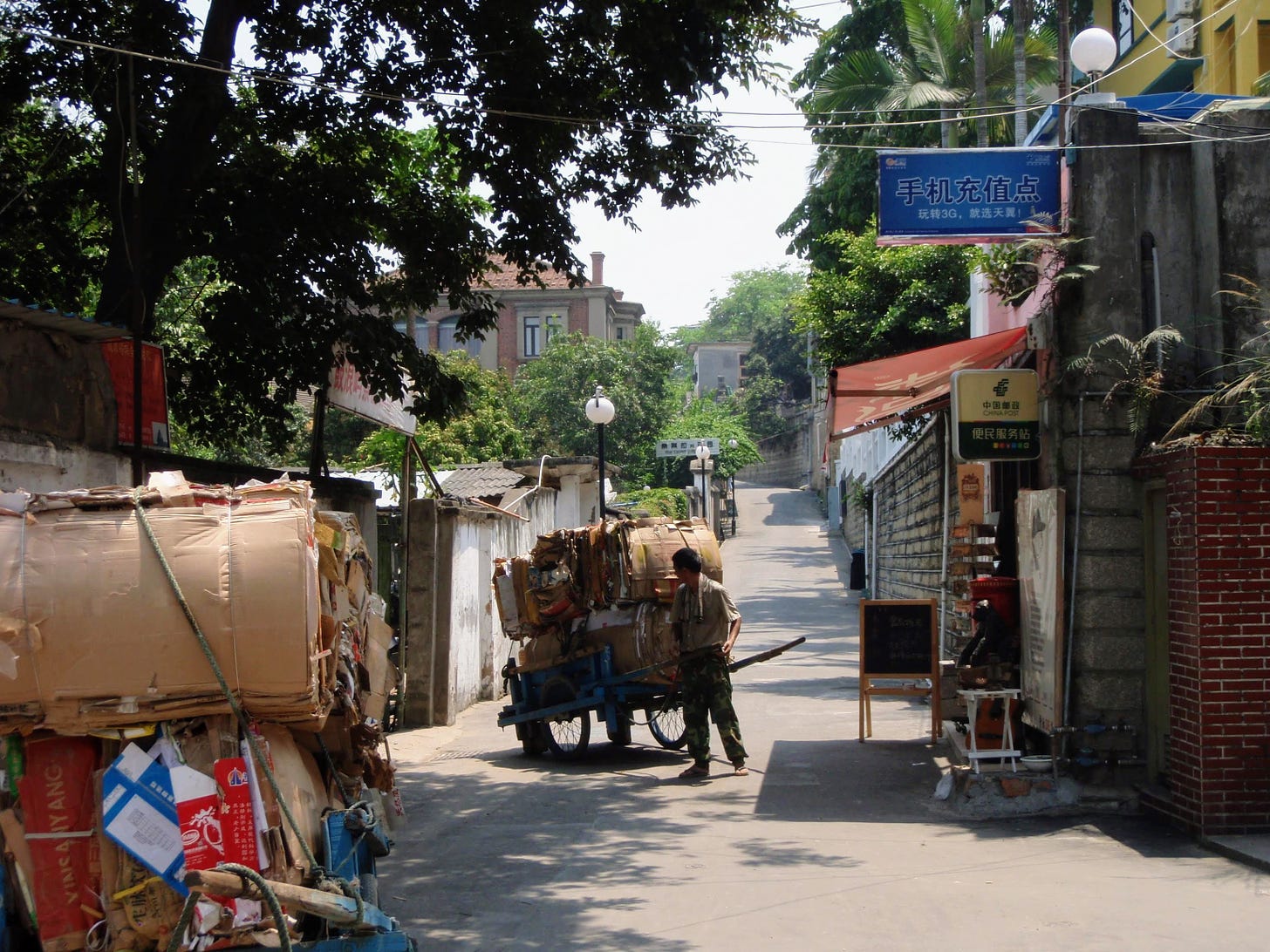
Expectations
If a month away in China was deeply restorative, and three months in Mexico was transformational, what could a longer timeframe do? I wondered.
I imagined reaching a new level of enlightenment, or at least becoming my most optimal self. I’d relax until I was blissfully Zen. Our kids would finally get enough attention from us and our family would cohere and cooperate as never before (don’t laugh). We would become more clear-minded. More creative. More purpose-driven. More outgoing.
If you are wise to the ways of human nature, you’d probably guess that none of this happened. And you’d be right. To extrapolate is to take a small amount of data and extend past what is known to make a prediction. In other words, if a few weeks of relaxation is restorative, a year’s worth will make you invincible. If the parent-child relationship benefits from a bit of quality time, constant time together will guarantee harmony.
It turns out that those things are sort of true, but only to a point — and, disappointingly, that point is not very far from where you started. In the end, you are who you are.
And now you know what came of our expectations. But what was the reality?
Reality #1: I’ve Never Had So Little Stress (As an Adult)
Living a life with minimal work in South America was indeed very chill. It was a wonderful corrective to the over-worked, over-involved, insomniac life I tried to live from my late twenties well into my thirties.
We woke up at no time in particular. Made a full breakfast — who cares how long that took. Finally left “home” to experience something new and exciting by mid to late-morning. Did we push through the early afternoon circadian lull? No. We took a nap. It was a life without deadlines, demands or obligations. We pushed ourselves when inspired, and took care of ourselves when our bodies protested.
The lower baseline of stress and anxiety was a constant throughout our entire trip. I say this even though we got stuck at the Bolivian border, mugged in Colombia, and threatened by Ecuadorian police on a rural strip of highway.
It might sound strange that a more risky and unsettled lifestyle could be far less stressful, but that’s because travel hiccups are intense, but short-lived. It’s that ancient kind of stress humans are tuned for. Like, oh crap, a jaguar’s after us… but then once the danger is over and the adrenaline subsides, it’s back to picking berries in the shade.
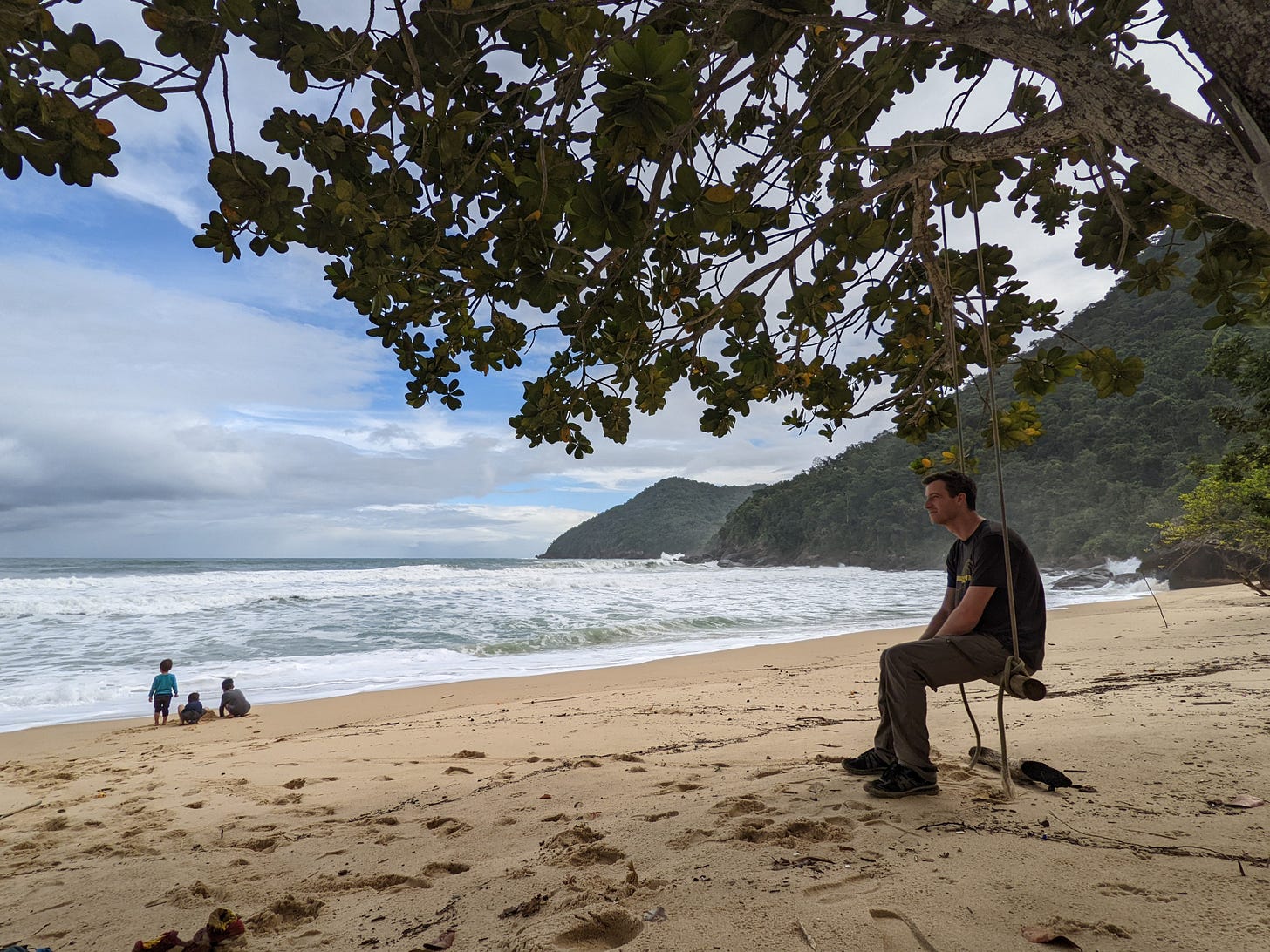
Reality #2: Time Becomes Stretched
This is a bit hard to fathom if you haven’t experienced it. But let me attempt to illustrate with a mental exercise.
Imagine something momentous is about to happen in two weeks. You will fly to a foreign country you’ve never visited before. So far you’ve only booked the plane tickets and nothing else. Do you:
- A) Do nothing. Two weeks is still a lifetime away.
- B) Start thinking maybe you should book some stuff.
- C) You were already anxious two weeks ago. Now you’re panicking. This thing is upon us.
At home, C feels like the correct answer. Two weeks go by in a snap. It may as well be tomorrow.
But travel time is different. Two weeks feels like a whole chapter of your life. You can accomplish in a day what you wouldn’t dare try to accomplish in a week back home. Hmmm, let’s see… today I’m going to swim in the ocean, climb a mountain, take a nap, write a blog post, and then meet someone for dinner while trying a new cuisine.
You might guess that idleness has a lot to do with it. But I don’t think that’s the case. We stayed plenty busy and active (see the following sections).
According to this Radiolab podcast, novelty tends to stretch time. I would also propose that not having your immediate future planned has something to do with it. At home, I can pretty reasonably guess what I’ll be doing a month, six months, or a year from now. On the road, we rarely knew what we were doing more than a month or two in advance. And that shortened horizon made the present seem to fill up an entire epoch.
Reality #3:Travel Planning Takes Up a Lot of Time
I’m not sure what a carefree day looks like to you. But for us, those days came at the expense of a surprising quantity of hours on our laptops, planning. When your current situation is constantly nearing its expiration date, one must always be figuring out what’s next. Neglect this task at your own peril!
For our first four months, we stayed in only three places in a single country, Brazil. Most of that was already settled before we left. The only logistical challenge was extending our visa because we stayed so long. Even that was child’s play compared to what came next.
What came next was our grand-continental-tour, flying down to the very southern tip of South America and wending our way up through Patagonia, Chile, Bolivia, and so on. All of a sudden, Liuan and I were moonlighting as our own travel agents. We both tackled the job according to our preferred tactics: I (engineer) with spreadsheets and scheduling software, and Liuan (journalist) by networking and calling people to obtain on-the-ground intel.
We both realized how ironic and ridiculous it was that “vagabonding” should take so much logistical work. So when we took our road trip around Ecuador, we decided not to plan ahead. It was very fun and worked out better than you’d expect. Nevertheless, I can’t even explain why, once the road trip was complete we went back to the comfort of our old ways: spending hours narrowing down Airbnb options.
More of Reality #3: Other Major Chores
Beyond the significant amount time spent planning, other mundane tasks were surprisingly prominent in proportion to what you would imagine a “vacationing” family does with their time.
Food prep was one of those things. We spent hours every day cooking, cleaning up after cooking, planning meals, and procuring food for our family of five.
Laundry. Having three shirts per person doesn’t reduce the laundry effort. It means you run smaller loads more often.
Schoolwork and making a living. I only worked one day a week. Liuan worked two. We homeschooled, but less than we originally intended. Even still, without a settled routine for these things, they felt like yet another incursion on our supposedly carefree lifestyle.
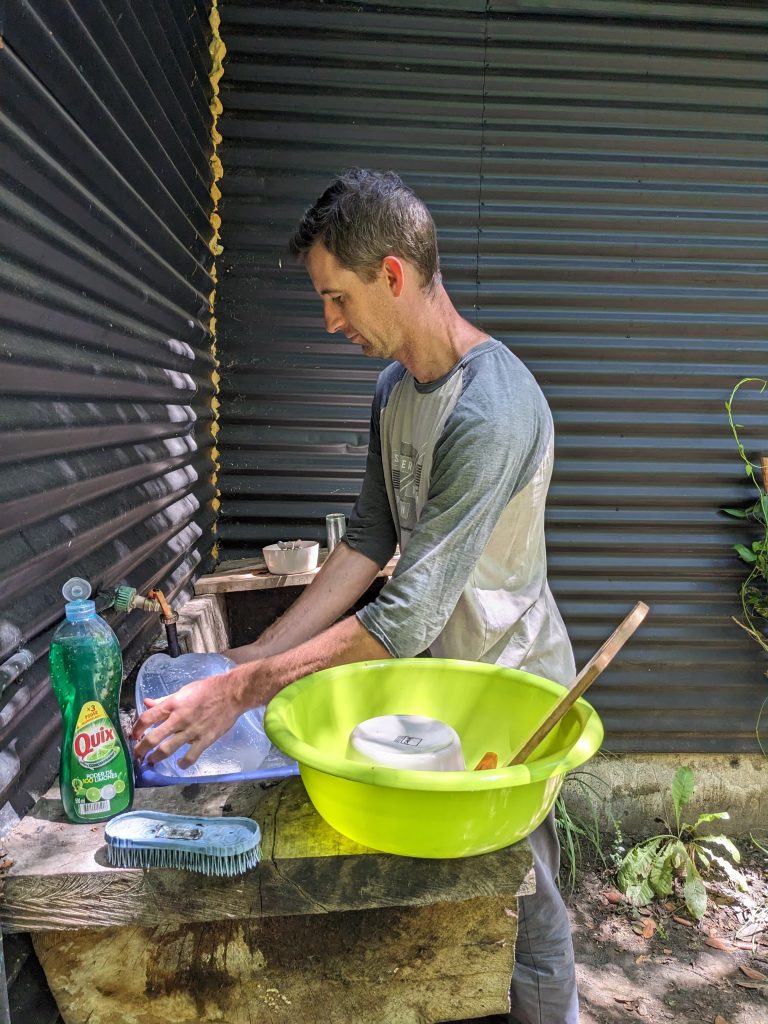
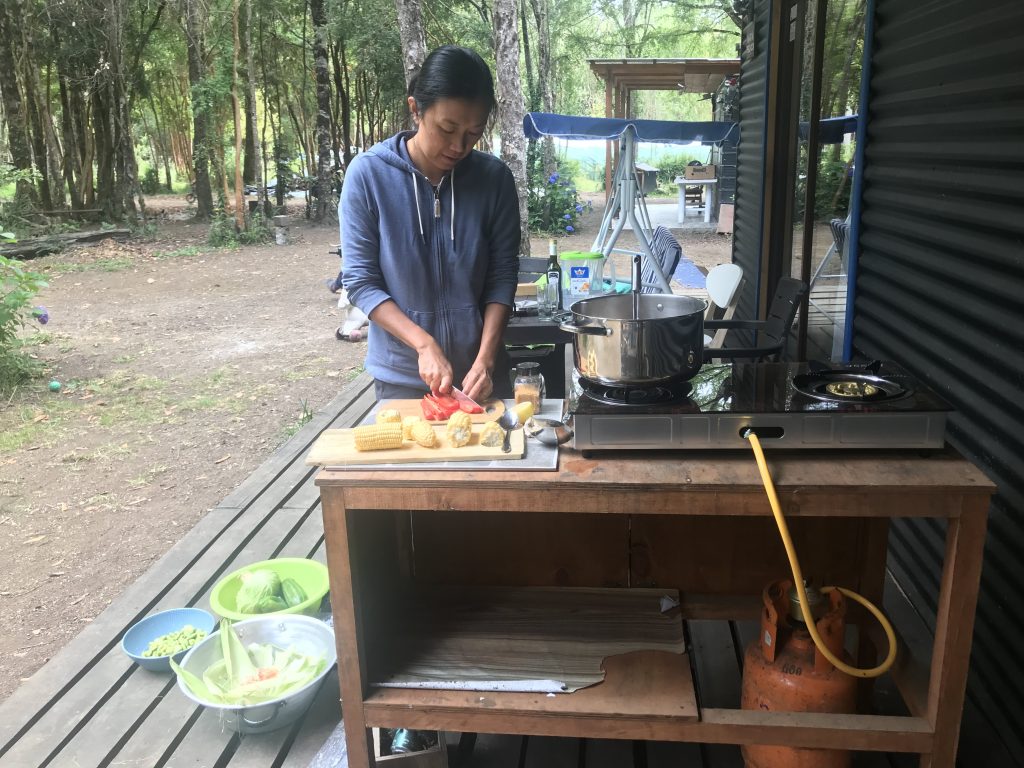
Reality #4: It Becomes Normal
This is the real bummer of long-term travel: you get used to it. It’s not that incredible things stop filling you with awe (though if you’re not careful, that can happen too). It’s that you lose that delicious sense of anticipation. By the time we had travelled through Brazil, Argentina and Chile, it was hard to get worked up with suspense over Bolivia, Ecuador or Colombia. It was just one more country.
It’s like the first time you taste fresh roasted coffee after drinking instant your whole life. It’s like a divine revelation. But after years of consuming two cups a day of top notch java, you barely notice. (You only notice on the rare occasion when a nasty pot of burnt tire water is your only option.)
Other things you get used to… low stress: it stops feeling relaxing, or like anything at all. Mountains, waterfalls and sunsets. Driving on terrifying roads. Living out of a backpack and choosing among three shirts. Sleeping somewhere different every few weeks.
As time went on we struggled to remember all the amazing things we just did. It’s as if, after the first couple months, our brains realized that if we kept laying down memories at that rate, we’d run out of room too soon. Despite our best efforts to relish each and every moment, we started becoming more like the zombies we were back in our normal routines.
When we started out I thought we would never want to quit. By the end, we didn’t go home because were unhappy or exhausted. Rather, everything seemed to blend together. Exotic travel lost its initial spark.
Regardless, I made a daily practice of reminding myself how lucky I was to be right here, right now.
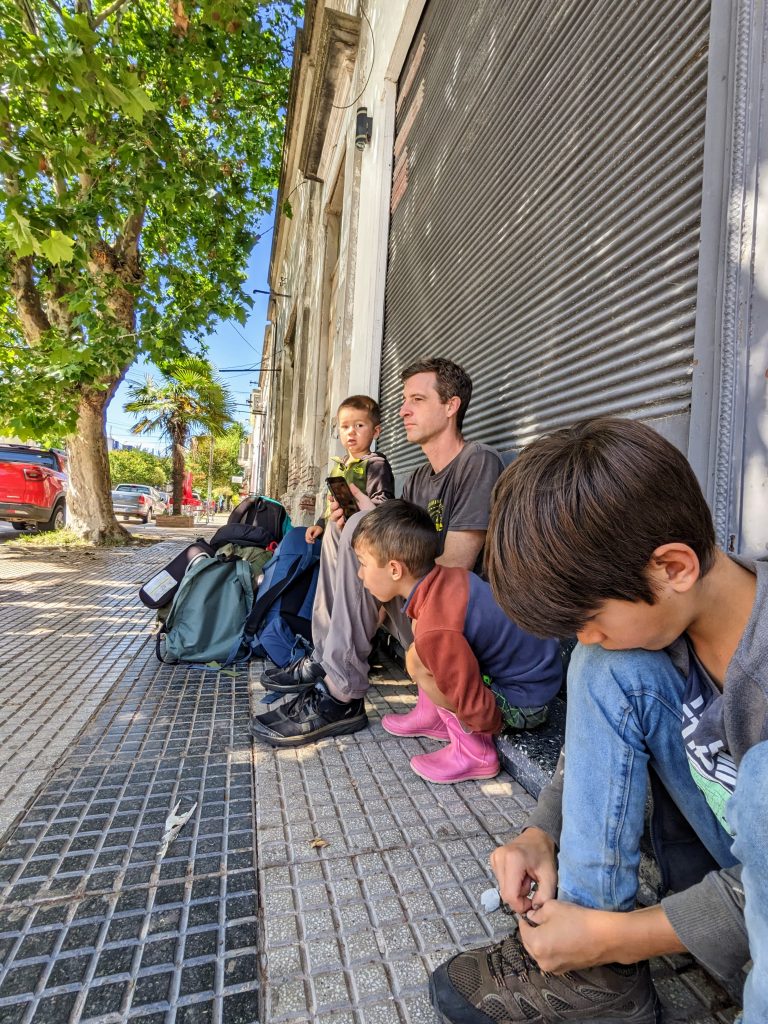
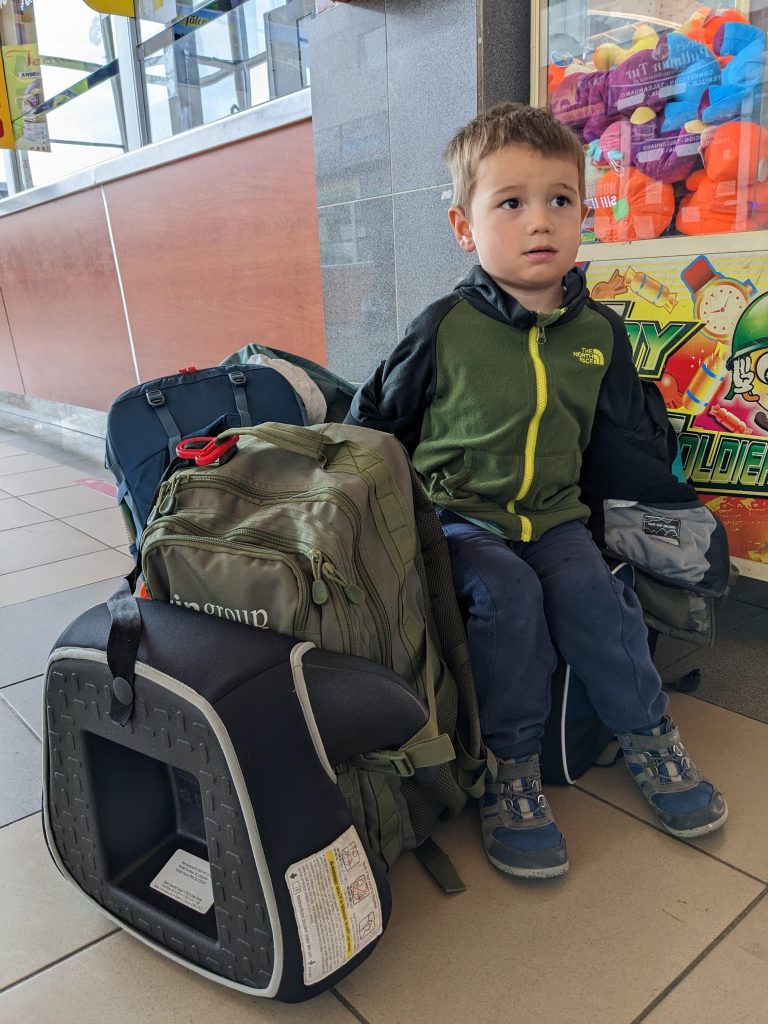
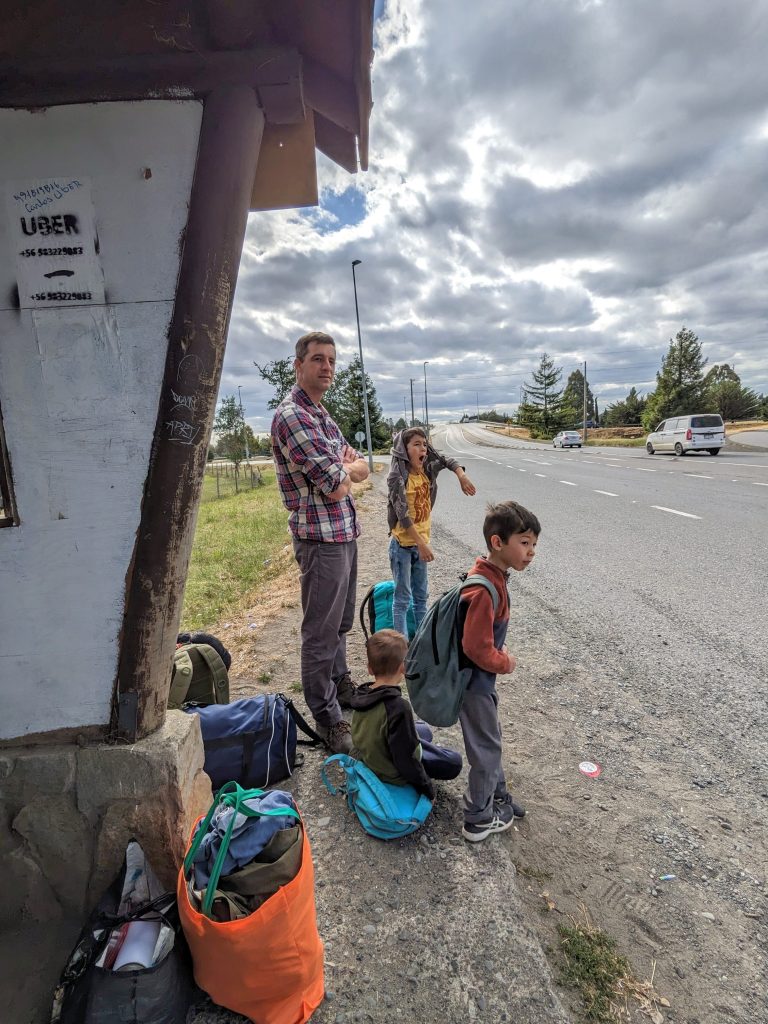
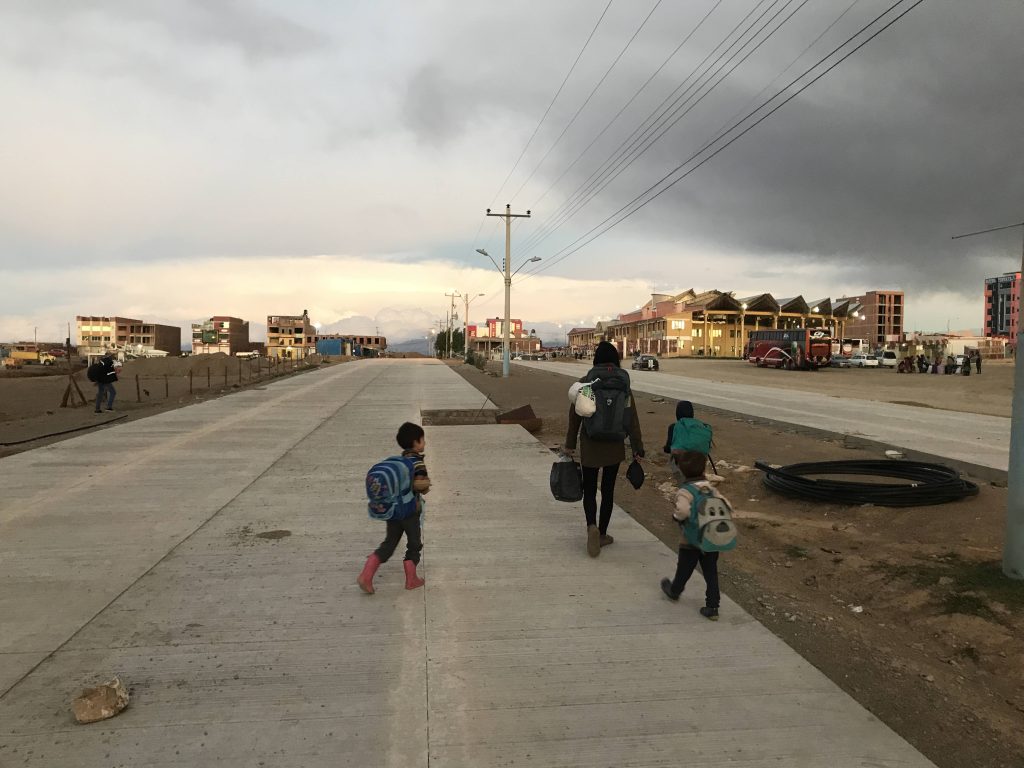
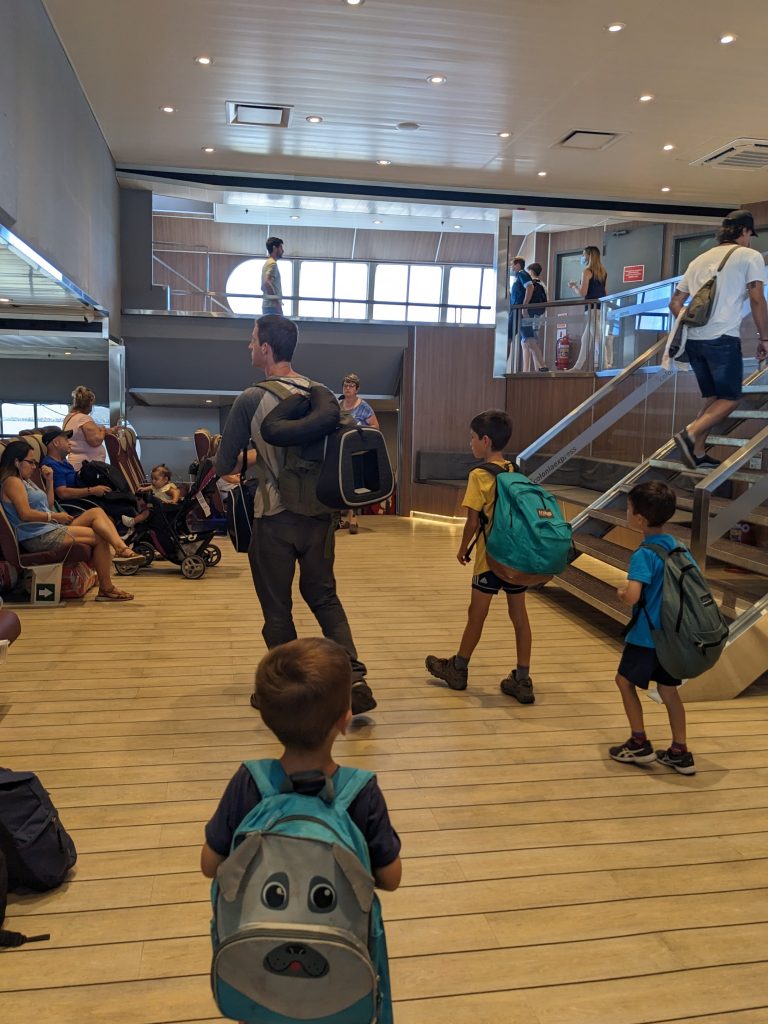
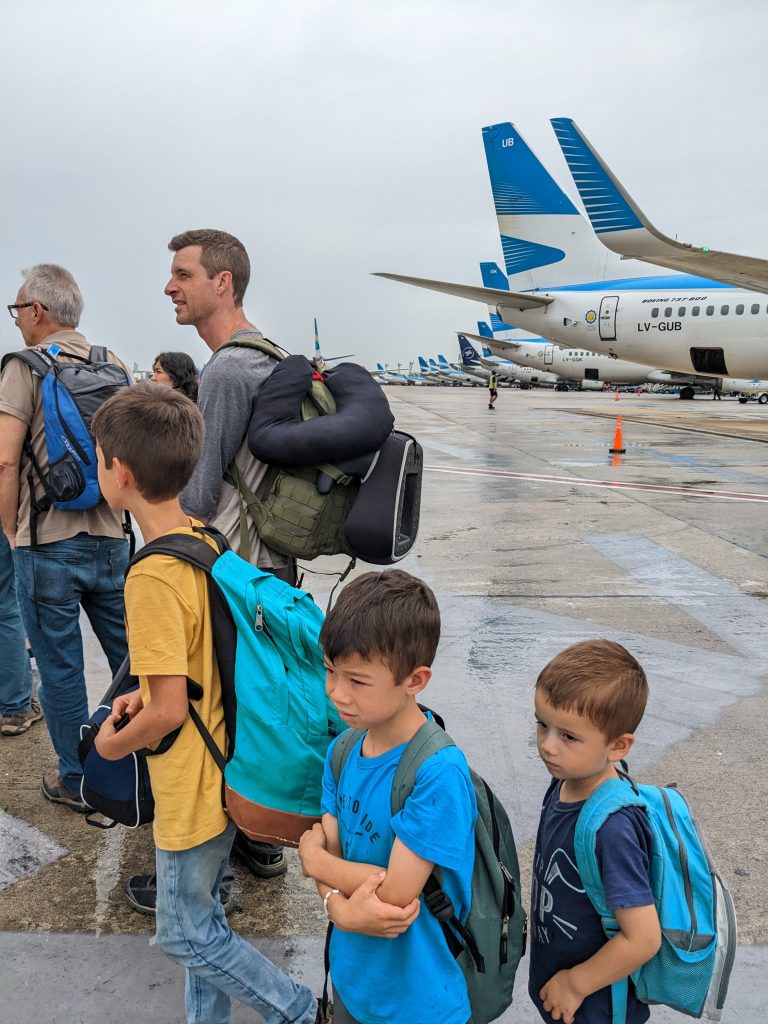
Back to Reality
I wouldn’t actually call what we did a vacation. Though it’s fun when someone cheekily refers to it that way, we prefer the terms “gap year” or “sabbatical.” It was an alternative lifestyle, with all the trappings of normal daily life: earning a living, cleaning up after ourselves, planning for the future, and sometimes living in community. It was self-sustaining in a way that a vacation doesn’t have to be.
But now we are back home, picking up where we left off. That makes the year truly a gap, rather than the departure we thought it might turn into.
While I enjoy the pleasures of home, I find myself missing our days on the road. Sometimes I imagine myself starting over, doing it all again, and catching up with all the friends we made along the way. I’m not sure Liuan and the boys feel the same — especially the boys who are thrilled to be back in school with their friends. Regardless, we all have nostalgia for our days of “carefree” wandering. We recently gave expression to that nostalgia by printing some of our favorite photos as huge posters and hanging them around the house.
Now that I am back living “real” life, I can appreciate what a priceless and special time that was. Despite all the ways it didn’t mirror our expectations, I totally recommend.


